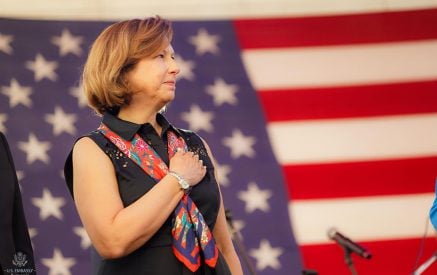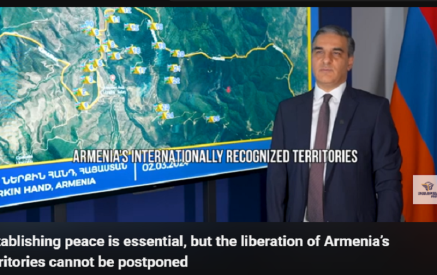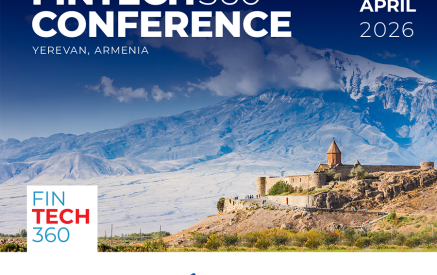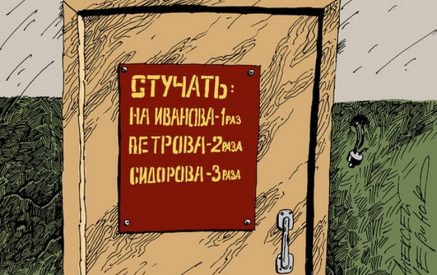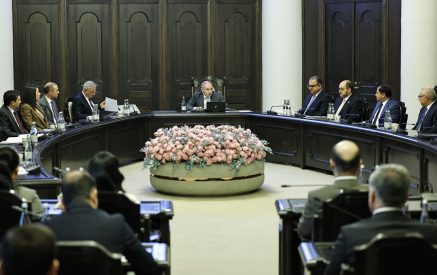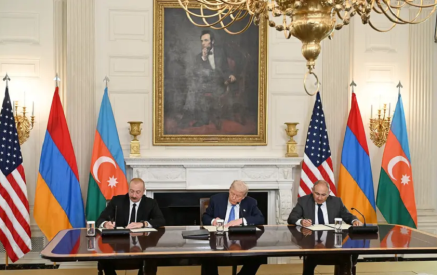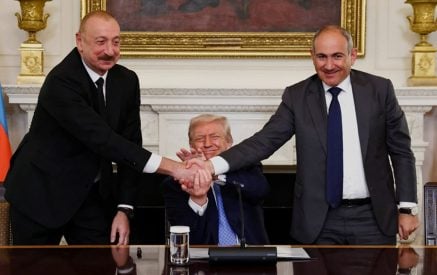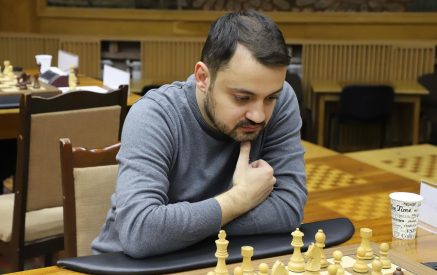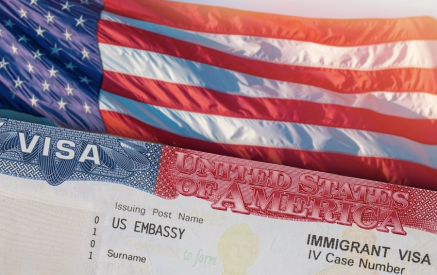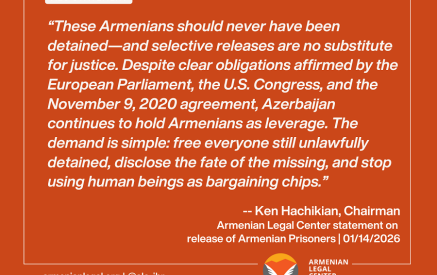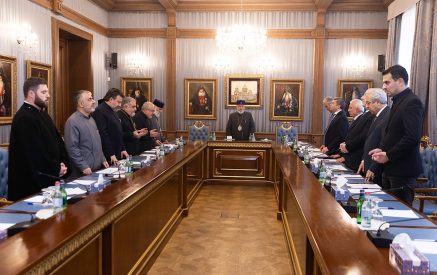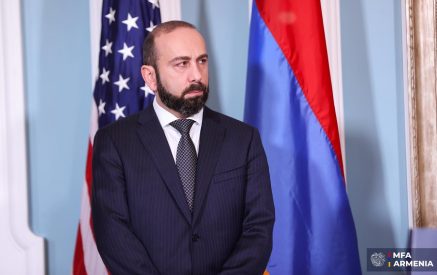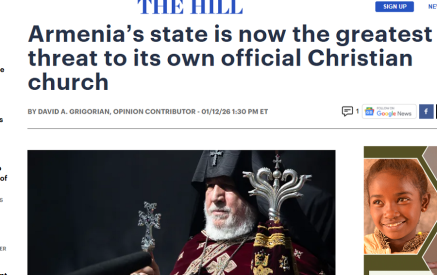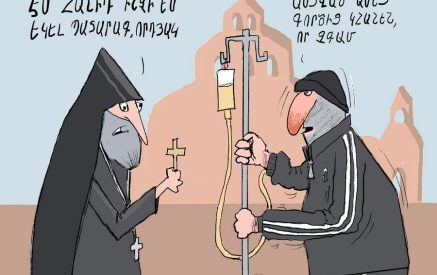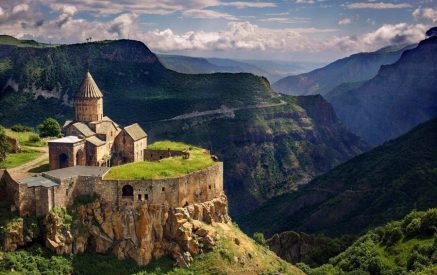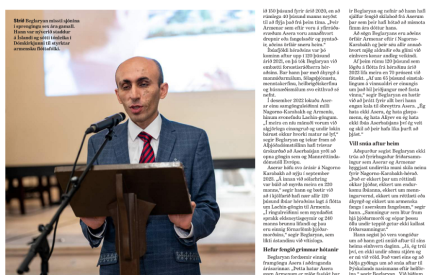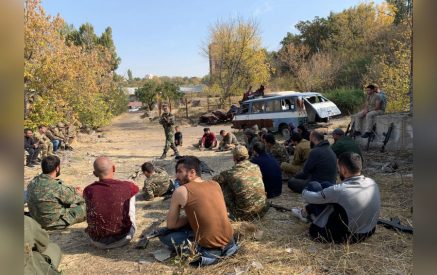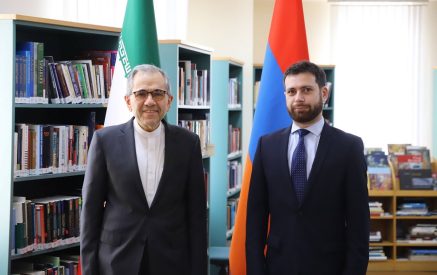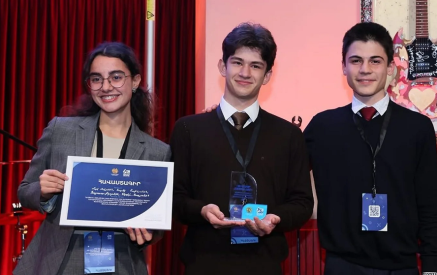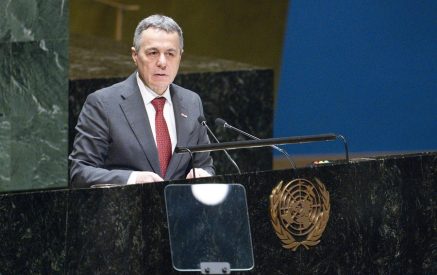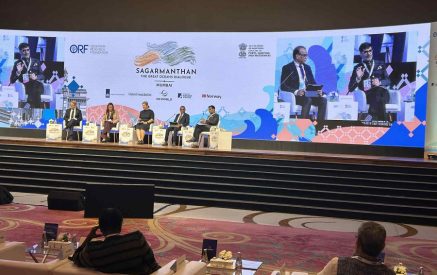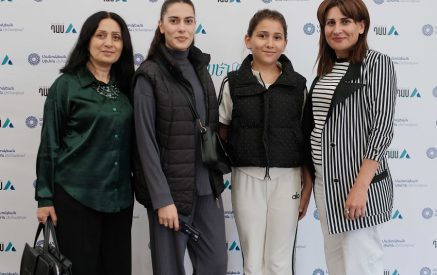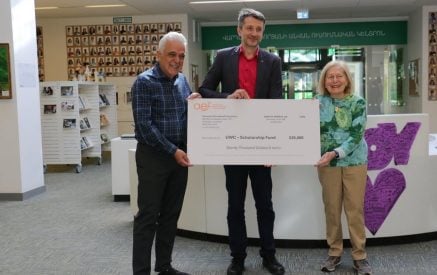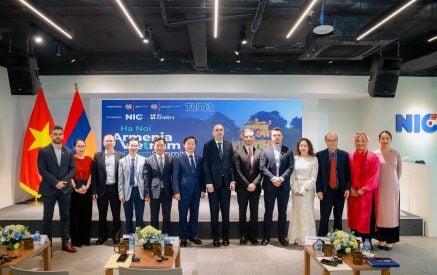The Armenian Weekly. In recent years, there have been some discussions in Diasporan circles on exactly how to help develop education in Armenia. As a mathematician, I have been involved in discussions centered on mathematical education at a university level and beyond. Based on these discussions, I believe that perhaps some of the circulated ideas might be of help, and perhaps more pragmatic thinkers among us might be able to give life to those ideas. Mathematics is what I know, and so I write about it, but the situation is probably the same in all areas of science and culture.
While Raffi Bedrosyan’s most recent article discussed a wider range of subjects, this article will concentrate on the field of mathematics, and by extension all technical fields.
Reiterating some of Bedrosyan’s ideas, it is absolutely essential that we modify the methods currently used to involve the diaspora in the future of Armenia. Monetary contributions should take the form of a tax instead of donations to some general funds. The diaspora needs to be represented in the parliament, and while such a representation will undoubtedly initiate a certain degree of communication between different branches of our diaspora, it is absolutely essential that there be strong communication between our Russian diaspora and our western diaspora. These two sides are not synchronized and often pull Armenia in different directions. One way to bridge the two is to organize regular international meetings on Armenian themes inviting all members of the Armenian Diaspora.
Technically advanced countries tend to have some of the best educational institutions in technical fields. It is not a coincidence that Silicon Valley neighbors UC Berkeley and Stanford, two of America’s leading universities. Armenians often say we need to model ourselves after Israel, become the Silicon Valley of the Near East, create a strong financial sector etc. None of that would be possible without serious investments in our educational institutions.
Read also
It is unfair to say that Armenia is doing a poor job at producing programmers, data scientists and other applied scientists. In fact, many reports suggest that the tech industry is booming. However, in most leading countries the strength of the tech industry comes not only from having a powerful four-year education system, but also having a powerful graduate education that would lead to a PhD degree in various fields of science.
Many employees in leading tech companies as well as in leading financial institutions have a PhD in mathematics, physics or some other technical field. In fact, during my 17 years spent in American graduate programs, first as a graduate student, then as a postdoc and then as a professor, I have seen a large number of very talented PhDs in mathematics from top US schools such as UC Berkeley, UCLA, Harvard, Rutgers, etc., end up in industry and not in academia. Generally they all are successful, and the fact that they choose to pursue a career in industry makes the tech and financial sectors fundamentally strong and full of incredibly smart and technically creative people.
To have a powerful tech and financial industry, we need to have strong theoreticians and coders working in the tech and financial industries. That’s why it will be a mistake if Armenia concentrates only on four-year university programs whose only goal is to give knowledge. PhD programs are also needed to mine knowledge and attract international investments and international students.
Today Israel, which exemplifies what we want Armenia to become, not only relies on its many diaspora scientists, but also has powerful well-structured universities that develop these scientists. It is also not uncommon to see Israeli mathematicians, who after a short spell in the western world, choose to have their permanent career back in Israel. These same universities, whose faculties consist of some of the world’s best mathematicians, also educate the future generation of industry workers. The entire production of human capital is self-sufficient.
Armenians are good at mathematics, and we have had many well-known ones including Emil Artin, Sergei Adian, Viktor Ambartsumian, Spiru Haret, Rom Varshamov, Mkhitar Djrbashian and Sergey Mergelyan. Armenia is certainly still giving birth to great mathematicians, but they often study and earn their training elsewhere. Fortunately, at this very moment we have many great mathematical minds all over the world who are experts in their respective fields. Our task must now be to redirect them towards Armenia.
Of course, this redirecting problem is not an easy one to solve. But many of us, of our own accord and using our personal contacts often go back to Armenia and teach “summer courses.” Others, using personal contacts, acquire PhD students from Armenia. There are a lot of uncoordinated yet good-willed activities that are happening, and one needs to simply give them direction.
While COVID devastated the world, it has also taught us lessons. For example, while general mathematics classes do not seem to work in an online format, more specialized ones—those that are taken by motivated and interested students—work perfectly. In fact, many of my graduate students seem to enjoy the online format, and many, even before COVID, organized their own graduate student seminars. At the moment, the world is full of online seminars that used to happen in classrooms but now happen online and are open to everyone. Many in the mathematical community believe these seminars may never restore their classroom format and will continue being available to the world.
This suggests that we can mobilize diaspora mathematicians by creating an online PhD program within one of our universities where volunteer diaspora mathematicians can teach Armenian students. Such a program must have both an undergraduate as well as a graduate component. The best graduates of such a program may seek PhD studies outside Armenia, using their diaspora professors as a bridge. If they are successful in academia, then they must return and teach in this program. As they will certainly have successful careers in the tech or financial sector in a western country, then if they do not teach in the program, they should donate to it. Most graduates of such a program will undoubtedly remain in Armenia and work in the tech or financial industries or have the option of pursuing a PhD within the program itself.
How can non-scientific communities of the diaspora help? For such programs to be successful, they need professional organization and management. Also, while the long-term goal of such programs must be self-sustainability, potentially administered by one of our local universities, they need startup capital. For one thing, students need some financial security to concentrate on their studies rather than seek work parallel to their studies. Our tech sector can help by developing better teaching tools. Platforms that are currently in use, such as Zoom, are insufficient in many ways and can be significantly improved.
I have always been impressed by the American University of Armenia; it is perhaps one of the most successful diaspora investments in Armenia. We need to replicate their success in the field of technical sciences.
The dream is that eventually such a program will create enough base in Armenia, both in industry and in academia, that it will become one of the leading mathematics programs in the world and will attract international investments into the scientific future of our country. Most of all, some of our talented mathematicians may find it more attractive to go back to their beloved country rather than build their professional careers on foreign lands.
Grigor Sargsyan
Photo: Michael Longmire/Unsplash






